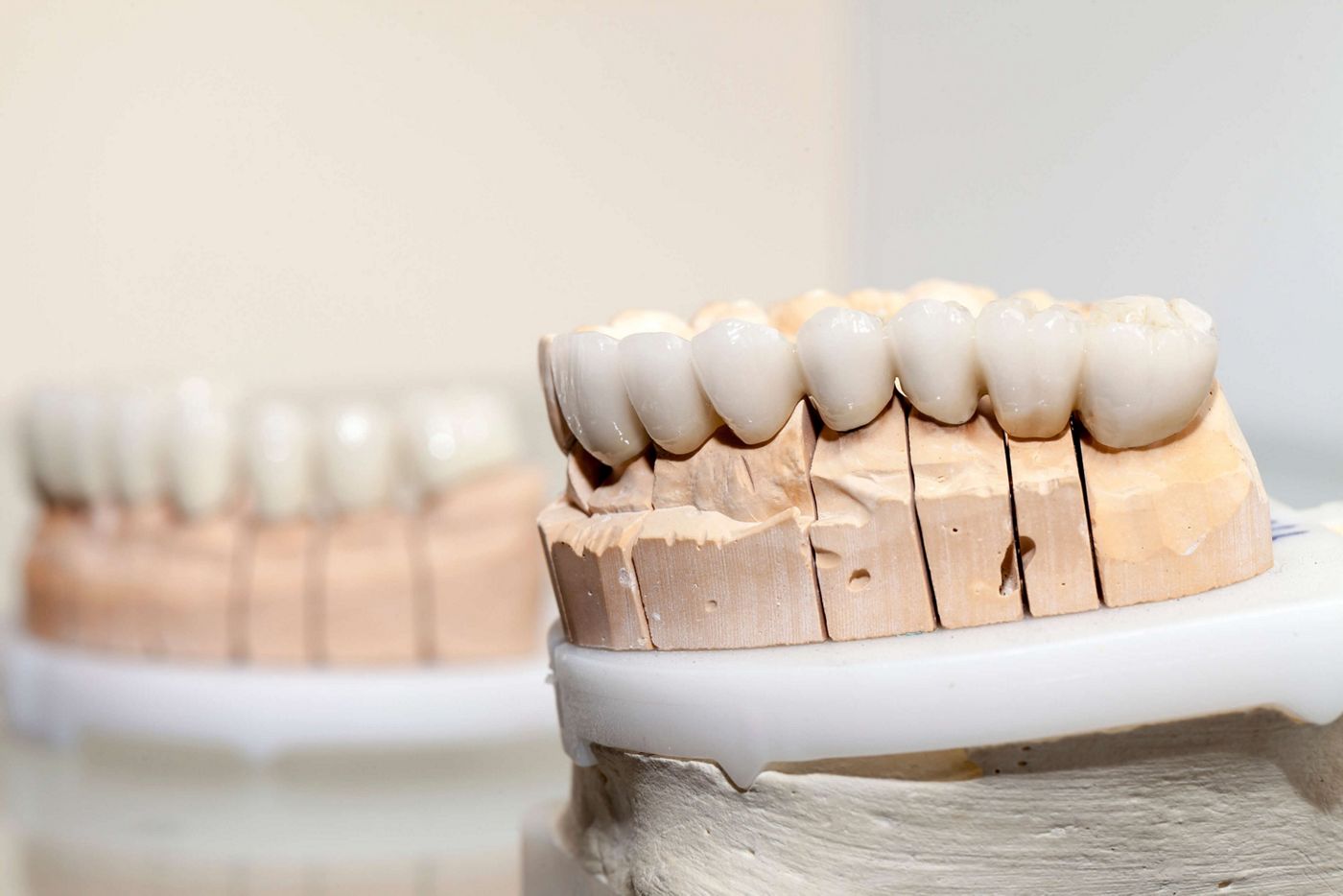Dental implant options: Zirconia vs Titanium
Dental implants offer a solution for missing teeth, with titanium and zirconia dental implants being the most prominent.
Understanding the differences between these options is crucial for patients to make an informed decision.

What are zirconia dental implants?
Zirconia implants are relatively newer in the dental world and are known for their aesthetic appeal and biocompatibility. Made from zirconium dioxide, these ceramic implants are a metal-free option, often chosen for their natural-looking appearance.
Zirconia's hypoallergenic properties makes it a good option for patients with metal sensitivities or allergies. Its white colour seamlessly blends with natural teeth, providing an advantage over the metallic look of traditional implants. Additionally, zirconia implants resist plaque accumulation, contributing to better oral health.
Advantages & disadvantages of zirconia dental implants
Benefits of zirconia implants:
They offer excellent biocompatibility, reducing the risk of allergic reactions.
Their tooth-like colour ensures a natural appearance, making them highly appealing from a cosmetic perspective.
Limitations of zirconia implants:
They are typically one-piece, which can complicate the surgical procedure and adjustments.
Their relative newness in the market means that there is less long-term data available compared to Titanium implants.
Zirconia is less flexible than titanium, potentially impacting durability.
What is a titanium dental implant?
Titanium dental implants are the gold standard in dental implantology and have been used for decades. These implants are known for their strength, durability, and high success rate. Titanium fuses well with the bone, making it an excellent choice for long-term tooth replacement.
Despite their metallic nature, titanium implants are often preferred due to their proven track record. They come in two parts: the implant that fuses with the jawbone and the abutment that holds the replacement tooth. This two-piece design allows for flexibility in placement and restoration.
Advantages and disadvantages of titanium dental implants
Benefits of titanium implants:
Titanium implants boast a high success rate, attributed to their strength and osseointegration capability.
They are suitable for most patients and provide a long-lasting solution for tooth loss.
Their modularity allows for customization in various dental scenarios.
Limitations of titanium implants:
Titanium can cause allergic reactions in a minority of patients.
There's also a cosmetic concern, as the metal can sometimes show through thin gums or recede over time.
Choosing between zirconia vs. titanium implants
Choosing between Zirconia and Titanium implants depends on various factors, including aesthetic preferences, allergies, and specific dental needs.
While Titanium is renowned for its strength and durability, Zirconia offers a metal-free alternative with a natural appearance. Patients with metal sensitivities might lean towards Zirconia, while those looking for a time-tested solution may prefer Titanium.
It is crucial to consult with a dentist to determine if a person is suitable for treatment. This involves considering their oral health, lifestyle, and the desired appearance of their teeth.
Cost differences between zirconia and titanium implants in the UK
The cost of dental implants in the UK varies, with zirconia implants generally being more expensive than titanium. On average, a titanium implant can cost between £1,000 to £3,500, whereas zirconia implants may range from £1,500 to £4,000 per tooth.
This price difference is due to the material cost and the manufacturing process of zirconia implants. It's important to consider that prices can vary based on the dental clinic, the complexity of the procedure, and if additional treatments will be required.
How do zirconia and titanium implants compare aesthetically?
Aesthetically, zirconia implants have a significant advantage due to their tooth-like colour. They blend seamlessly with natural teeth, making them ideal for front tooth replacements or for patients with thin gums where the implant might show.
Titanium implants, while not as visually appealing, are often hidden beneath the gum line, minimizing aesthetic concerns. However, in cases of gum recession, the metal can become visible, which might be undesirable for some patients. The choice often depends on the implant's location and the patient's gum health.
How do zirconia and titanium implants perform in bone integration?
Bone integration is crucial for implant success. Titanium implants have a long history of excellent osseointegration, forming a strong bond with the bone. This has been a key factor in their widespread use and success in dental restorations.
Zirconia implants, while newer, have shown promising results in bone integration. Their biocompatible nature supports healthy bone attachment, although long-term studies are still ongoing. Each material has its unique properties that influence how well it integrates with the jawbone.
Maintenance requirements for both dental implant types
Both zirconia and titanium implants require regular maintenance, similarly to natural teeth. This includes daily brushing, flossing, and regular dental check-ups. However, their maintenance needs slightly differ due to their material properties.
Zirconia implants are less prone to plaque accumulation, potentially reducing the risk of gum disease. Titanium implants, though durable, require careful monitoring for any signs of peri-implantitis. Good oral hygiene and professional cleanings are essential for the longevity of both implant types.